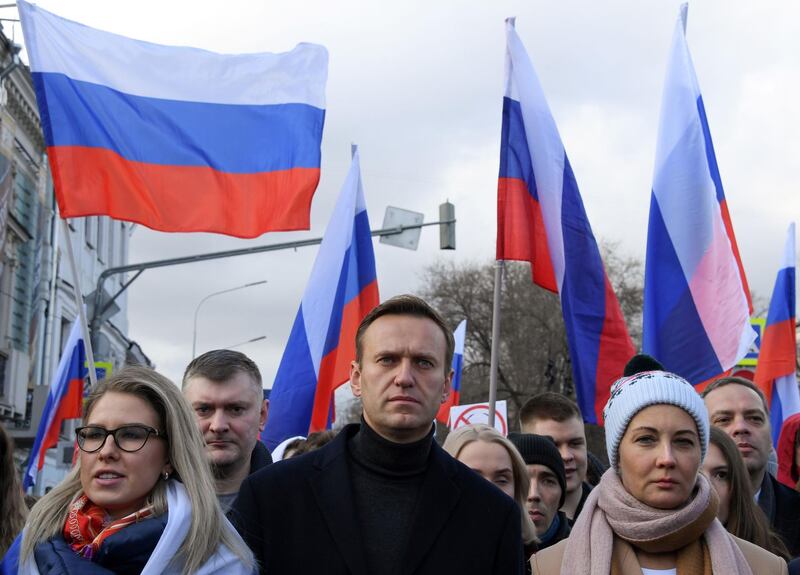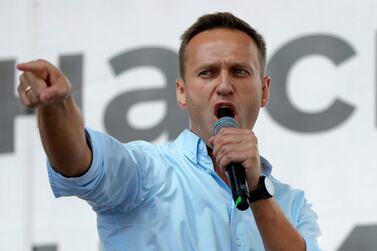Germany has threatened to impose sanctions on Russia after the poisoning of opposition figure Alexei Navalny, accusing Moscow of delaying an investigation.
Russian opposition leader and anti-corruption campaigner Mr Navalny became ill on a flight last month and was treated in a Siberian hospital before being flown to Berlin.
Germany said last week there was “unequivocal evidence” that he had been poisoned with the Soviet-era nerve agent novichok.
Berlin, which holds the rotating EU presidency, will discuss possible sanctions against Russia if the Kremlin does not provide an explanation “in the coming days”, Foreign Minister Heiko Maas said on Sunday.
"We have high expectations of the Russian government to solve this serious crime," Mr Maas told German daily newspaper Bild.
“If the government has nothing to do with the attack, then it is in its own interest to back this up with facts.”
If not, Germany will be compelled to “discuss a response with our allies”, he said.
Any sanctions decided should be “targeted”, Mr Maas said.
British Foreign Secretary Dominic Raab on Sunday said Russia had “a very serious set of questions to answer” and it was clear that the Kremlin critic was poisoned with novichok.
Russia has denied responsibility for the attack and Foreign Minister Sergey Lavrov said Germany had yet to share any findings with Moscow’s prosecutors.
Foreign Ministry spokeswoman Maria Zakharova on Sunday accused Germany of dragging its feet in response to a request sent by Russian prosecutors on August 27.
“So far we are not certain that Germany is not playing a double game,” Ms Zakharova said.
“Where is the ‘urgency’ you are insisting upon?
“By not sending its answer, Berlin is stalling the process of investigation for which it’s calling. On purpose?”
In an interview with the ARD broadcaster later on Sunday, Mr Maas accused Moscow of “smoke and mirrors” tactics.
“And I fear we will see more of this in the coming days,” he said.
Mr Maas said he had already agreed in principle to a request for judicial assistance which was being examined by the Berlin public prosecutor’s office.
He earlier said there were “several indications” that Russia was behind the poisoning, the strongest accusations yet from Germany.
“Only a small number of people have access to novichok and this poison was used by Russian secret services in the attack against former agent Sergei Skripal,” Mr Maas said.
He was referring to the 2018 attack on the former double agent and his daughter in the English city of Salisbury.
Mr Maas did not rule out action relating to Nord Stream 2, a multibillion-euro Russian-German gas pipeline that is nearing completion.
“I hope that the Russians do not force us to change our position on Nord Stream,” Mr Maas said.
He said the consequences of any cancellation would also need to be considered, while the debate on sanctions should not be reduced to one point.
Mr Maas on Sunday repeated this position, saying it would be “wrong to rule out from the outset” any consequences for Nord Stream 2.
The Navalny case is only the latest in what Berlin considers to be provocations by Moscow that have damaged ties and called future co-operation into question.
The poisoning comes a year after the murder of a former Chechen rebel commander, which German prosecutors believe was ordered by Russia, in a park in Berlin.







